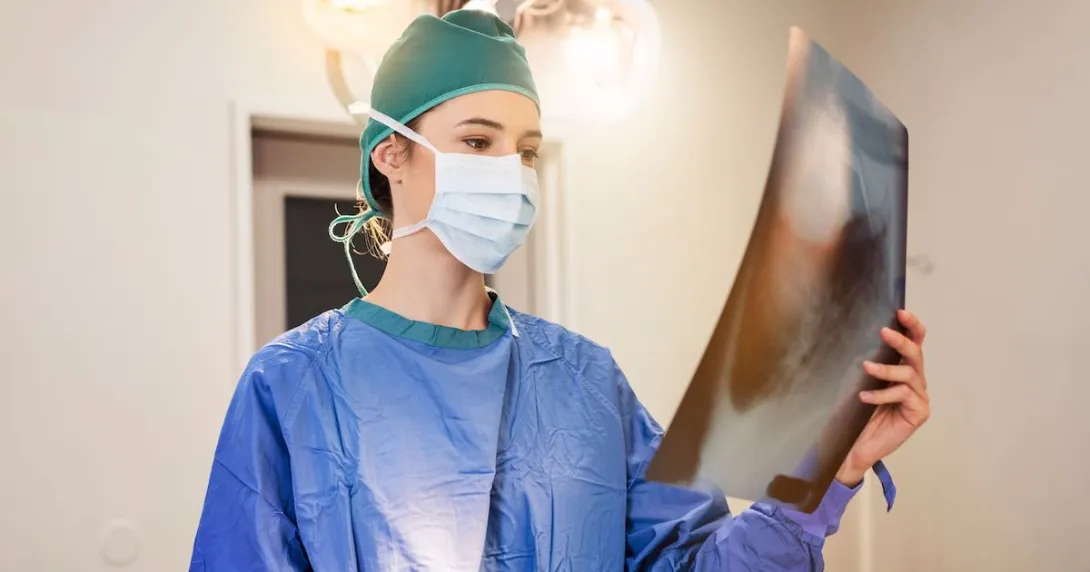
Photo: Stígur Már Karlsson/Heimsmyndir via Getty Images
Samsung Medical Center announced that its researchers have developed a new AI model capable of predicting the recurrence risk of non-small cell lung cancer up to a year in advance.
WHAT IT'S ABOUT
According to the hospital, RADAR CARE (Real-time Risk-Adapted Surveillance Comprehensive Strategy AI Model for Early-Stage NSCLC) simultaneously processes different data types, including clinical information, pathology test results, CT scan results, as well as patient-specific medical information, to quantify a lung cancer patient's risk for recurrence within a year.
It provides scores classifying patients into three risk categories: low, intermediate, and high.
The transformer-based deep learning model was trained on data from approximately 14,177 patients with early-stage NSCLC who underwent surgery at SMC between 2008 and 2022.
FINDINGS
The AI model was tested in a study, which found that patients with higher scores had greater risks of lung cancer recurrence within a year, regardless of the cancer stage. Recurrence rates were 10% in the high-risk group, 5% in the intermediate group, and 1% in the low-risk group.
Interestingly, the findings also indicated that stage 1 NSCLC patients with high scores could face higher recurrence rates than stage 3 patients with low scores, while stage 3 patients with low scores had a very low probability of recurrence.
Regardless of stage, the likelihood of recurrence or death was 3.59 times higher in the intermediate group and 9.67 times higher in the high-risk group compared with the low-risk group.
Moreover, high-risk patients remained more vulnerable within each stage, with risks 5.83 times higher in stage 1, 1.75 times higher in stage 2, and 1.84 times higher in stage 3.
WHY IT MATTERS
Surgical treatment is commonly indicated for patients diagnosed with NSCLC, the most common form of lung cancer. In South Korea, 35% of NSCLC patients are diagnosed early.
Even so, the five-year survival rate remains at 37%, according to Dr Kim Hong-Kwan, professor in the Department of Thoracic and Cardiovascular Surgery at SMC. "This is because existing staging classifications alone make it difficult to accurately predict patient prognosis," said the professor, who also leads the RADAR CARE study.
Within the same cancer stage, recurrence risks can still vary among patients. Meanwhile, follow-up examinations are conducted every three to six months, regardless of individual risks.
Prof Kim expects that their team's AI model will help determine more favourable treatment directions for patients.
The scoring system is now applied at SMC post-surgically in patients with NSCLC to guide personalised treatment planning.
THE LARGER TREND
Researchers in Singapore have also recently developed an AI-driven scoring system for predicting the recurrence of hepatocellular carcinoma, a common liver cancer. The web app-based tool predicts liver cancer recurrence with 82% accuracy.
Also, Lunit, together with AstraZeneca, has utilised AI to accelerate genomic testing as part of predicting NSCLC.
